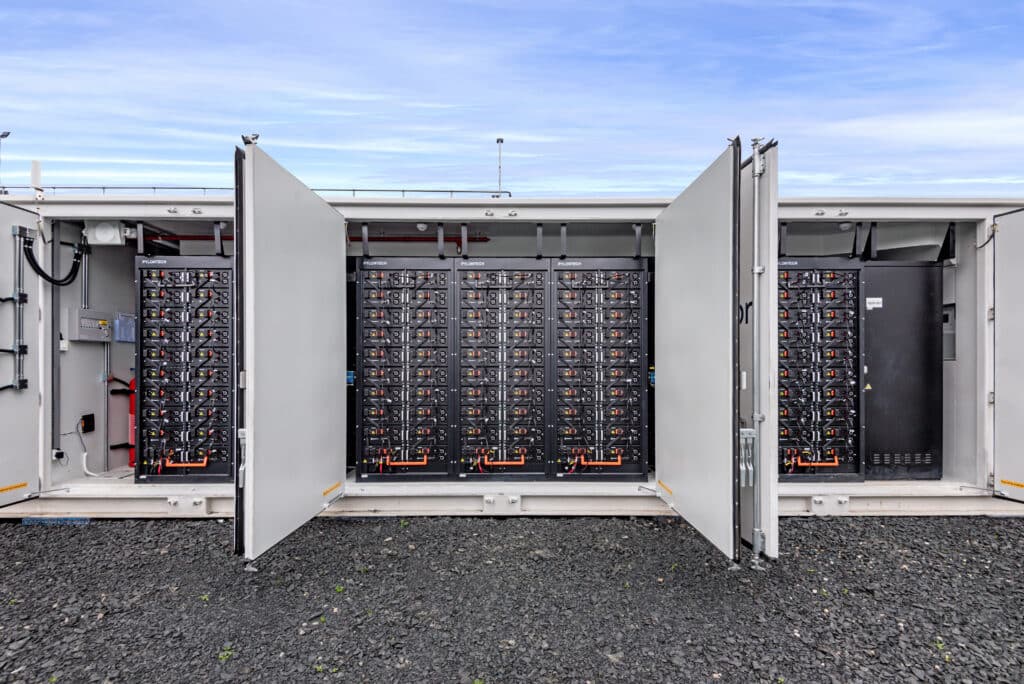The EU’s Energy Net Zero Industry Act (NZIA) is a cornerstone of the European Green Deal, aimed at boosting the production and deployment of clean energy technologies across Europe.
Introduced as part of the Green Deal Industrial Plan, the Act seeks to enhance the EU’s energy resilience and competitiveness while accelerating progress toward its net zero emissions target by 2050. By focusing on scaling up renewable energy and energy storage solutions, it supports the transition to a sustainable and climate-neutral economy.
For the energy and industrial sectors, the NZIA is transformative. It provides a clear regulatory framework to encourage investment in clean net-zero technologies, streamline permitting processes, and strengthen supply chains for critical components like batteries and energy storage systems. The Act also sets ambitious targets, such as producing at least 40% of clean technologies in the EU by 2030, ensuring energy independence, and reducing reliance on imports of green tech from non-EU countries.
Key elements of the energy Net-Zero Industry Act
Increase clean technology production
The NZIA aims to ensure that at least 40% of key clean technologies are produced within the EU by 2030, addressing the need for energy independence and competitiveness. This target encompasses critical technologies such as energy storage systems, solar panels, wind turbines, and heat pumps. By bolstering domestic production, the Act reduces Europe’s reliance on imports from non-EU countries, creating a more resilient supply chain and supporting the EU’s climate and energy goals.
Streamline permitting processes
A major barrier to clean energy projects has been the lengthy and complex permitting process. The NZIA introduces measures to simplify and expedite approvals for renewable energy projects and clean technology installations. These reforms include setting clear deadlines for permitting decisions, providing standardised processes across member states, and prioritising strategic projects.
By removing administrative bottlenecks, the Act speeds up the rollout of renewable energy systems and technologies like energy storage. This helps ensure that Europe stays on track to meet its ambitious decarbonisation targets.
Strengthen supply chains
The NZIA recognises the importance of robust and localised supply chains in achieving energy security and sustainability. It provides targeted support for the development of domestic manufacturing capabilities for critical components, including batteries, solar panels, and wind turbines.
This includes financial incentives for factories, grants for supply chain innovation, and fostering partnerships across the EU.
Promote green jobs and innovation
The transition to a green economy requires a skilled workforce and continuous innovation. The NZIA focuses on developing green jobs and fostering technological advancement by supporting education, training programs, and research initiatives. It encourages collaboration between industries, academic institutions, and governments to drive breakthroughs in clean technologies like energy storage.
Additionally, the Act prioritises the development of “industrial ecosystems,” where regions specialise in certain technologies, creating hubs of expertise and innovation. This approach not only drives economic growth but also ensures that the EU remains at the forefront of the global clean energy transition.
Decarbonisation and energy independence
The Act offers significant opportunities for businesses to innovate and lead in the green economy aiming for energy independence.
Innovation
The focus on clean technology production and research creates new opportunities for businesses to invest in advanced solutions. Next-generation energy storage, in particular, enhances flexibility and resilience.
Companies that innovate early can establish a competitive edge in the growing clean energy market.
Decarbonisation
Businesses have the chance to accelerate their sustainability agendas by adopting renewable energy and storage systems, reducing emissions, and meeting net-zero targets. This not only helps to address the increasing price for CO2-emission within the EU but also enhances brand reputation and aligns with consumer and stakeholder expectations.
Energy independence
By investing in decentralised renewable energy systems and energy storage, companies can reduce reliance on volatile energy markets, increasing grid fees and imported fuels. Energy independence enhances resilience to price fluctuations and supply disruptions, providing long-term cost stability.
Incentives and funding
The Act provides financial incentives and simplified permitting processes that reduce barriers for clean technology projects. This makes it easier for businesses to transition to sustainable energy solutions.
How energy storage supports the Net-Zero Industry Act
Battery Energy storage Systems (BESS) are essential for businesses aiming to meet the renewable energy and emissions targets outlined in the Energy Net Zero Industry Act.
By storing excess energy from renewables like solar and wind, BESS ensures clean power is available whenever it’s needed. This reduces reliance on fossil fuels and supports ambitious decarbonisation goals. Storage also helps businesses stay compliant by balancing intermittent renewable generation with steady energy demand — a key requirement under the Act. Additionally, BESS plays a key role in the EU’s push for decentralised energy systems.
Businesses can integrate storage with on-site renewable energy systems to boost self-consumption. This approach aligns with the Act’s emphasis on energy independence and the local production of clean technologies.
Conclusion
Whether you aim to reduce grid dependency, achieve net zero goals, or secure energy independence, this guide offers useful insights. Hopefully, it has provided a solid foundation for taking actionable steps. Together, these steps can lead toward a more sustainable and profitable energy future.
Wattstor is here to help you navigate the journey with expertise, innovative solutions and proven success stories to make your renewable energy vision a reality. Contact us today to start transforming your energy strategy.
Know someone who'd be interested in this? Why not share it:

